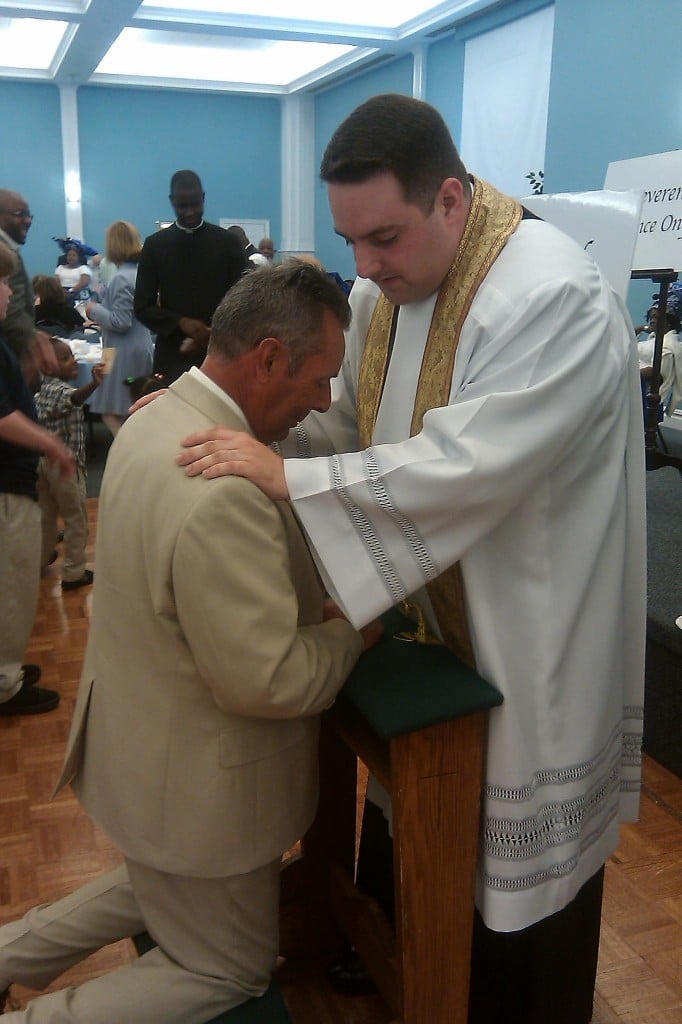I had the pleasure of knowing Sr. Joan Roccasalvo, C.S.J. while I did my undergraduate studies at Fordham University. She is a remarkable woman with a great love for the Church. Her article on Pope Francis is something new and fascinating.
When composers begin a new work, they choose a key that will suit an overall feeling they wish to convey. Every key, major or minor, suggests its own ethos, but there is a decided difference in feeling between major and minor keys. A major key typically sounds dynamic and directional, expansive, happy, and buoyant, whereas a minor key, more often than not, conveys brooding darkness and introspection. There are only a few changes in notes between major and minor keys. Still, even a few changes can make a big difference. F Major is the pastoral key, the graceful key, the key of gentleness, calm, and peace. Take for example, Vivaldi’s “Autumn” from the “Four Seasons,” and most famously, Beethoven’s “Pastoral” Symphony, #6. These works are cast in the key of F Major. The Pope’s vision for the Church suggests F major.
In Francis, we have a Renaissance Man with a distinct preference for the downtrodden. Though seemingly opposed to power as power over others, he speaks with a powerful and convincing authority—like Jesus. The ‘author’ in authority connotes a speaker’s talent and his or her ability to evoke the creativity of others. In Italian, there are two words linked with power, both repugnant: superbia and orgoglio. The former connotes lording it over others, having a superiority attitude of condescension; the latter, connotes oozing with pride.
In the key of F Major, the Pope stresses the pastoral side of church leaders who divest themselves of luxury, of an attitude of power over rather than authority with. To be a credible witness to what she proclaims, the Church needs leaders who live simply, even abstemiously, without pomp or luxury, leaders who are detached from power, privilege, prestige, and position because all are entrusted to them for a short time.
and:
In six short months, Pope Francis has addressed many groups within the Church: the Ordained, symbolizing order, law, and stability, as well as the Non-Ordained of laity and consecrated religious, symbolizing creativity and dynamism. When the Lord washes the feet of Peter who wants to unite himself with his Master, he Peter must renounce status and all that is associated with status—glory and honorifics. The Lord chooses a servile but loving act to give the example. What Jesus has done for and to him, all of us are called to repeat to and for others. Our vocation is to share in the Lord’s redemptive work for the sake of others. Henceforth, the mandate given to Peter will be the loving service that marks Christian discipleship. The mission is so explicit that it cannot be misunderstood or misinterpreted.
Pope Francis has embarked on leading the Church forward with a gentle, calm vision, wide and deep: To be a Catholic is to be catholic. ‘Take our beauty, our truth, our goodness, and go out,’ he seems to be saying, ‘and change the world that is dealing with so many difficult problems—the inviolable dignity of every man and woman, unemployment, immigration, poverty, violence and war. ‘Let your voice go out to all the earth, and sing; proclaim the Lord’s message to the ends of the earth (Ps 19). Take the orchestra on the road, and let it play; let it sing.’
Please go and read her whole article. It is truly something fascinating.















